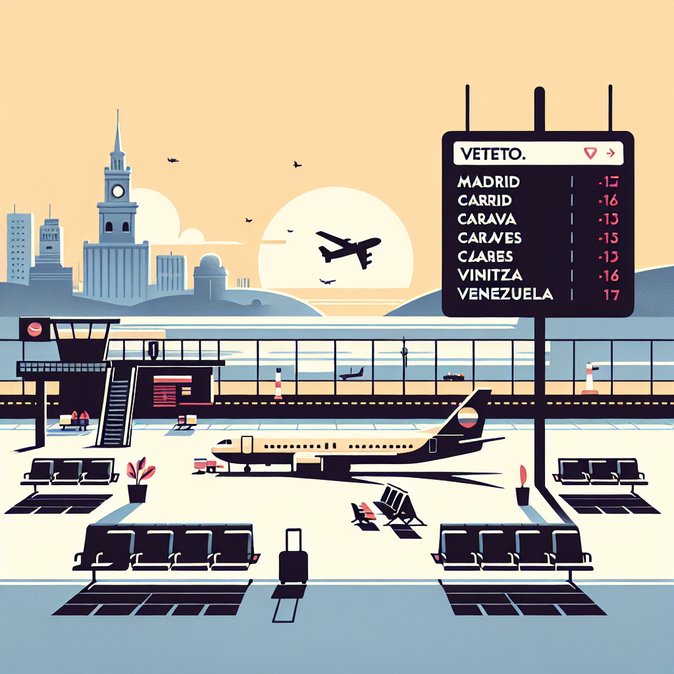
Spanish carriers Iberia, Air Europa and Plus Ultra have confirmed that they will keep their Madrid–Caracas services on hold for the foreseeable future, despite a 25 November ultimatum from Venezuela’s government threatening to revoke traffic rights if operations did not resume. The decision follows an updated bulletin from Spain’s Aviation Safety Agency (AESA) warning of increased military activity and anti-aircraft deployments in the southern Caribbean, as well as poor air-traffic-control coordination in Venezuelan airspace.
Airlines first halted the route in early November, but internal risk assessments carried out over the weekend concluded that conditions had not improved enough to guarantee crew and passenger safety. Around 6,000 ticket-holders have already been re-accommodated, and Spain’s Ministry of Transport says it is monitoring the situation “hour by hour” with EU counterparts.
![Spanish airlines extend suspension of Madrid-Caracas flights amid heightened security risks]()
Operationally, the suspension severs one of the few remaining nonstop links between Venezuela and Europe, forcing travellers onto multi-stop itineraries via Bogotá, Istanbul or São Paulo. Corporate mobility managers with projects in Venezuela have been advised to build in at least 24-48 hours of extra transit time and to check that Schengen multiple-entry visas for non-EU assignees cover any additional layovers.
For Spanish exporters, the pause could also delay cargo shipments of automotive parts and medical supplies that normally move in the belly hold of passenger aircraft. Freight forwarders report spot-rate surcharges of up to 35 % on alternative routings.
Industry observers note that Madrid–Caracas traffic had only recently recovered to 70 % of pre-pandemic capacity, fuelled largely by visiting-friends-and-relatives (VFR) demand and oil-and-gas assignments. Unless security conditions stabilise quickly, that recovery is now likely to be pushed into late-2026.
Airlines first halted the route in early November, but internal risk assessments carried out over the weekend concluded that conditions had not improved enough to guarantee crew and passenger safety. Around 6,000 ticket-holders have already been re-accommodated, and Spain’s Ministry of Transport says it is monitoring the situation “hour by hour” with EU counterparts.

Operationally, the suspension severs one of the few remaining nonstop links between Venezuela and Europe, forcing travellers onto multi-stop itineraries via Bogotá, Istanbul or São Paulo. Corporate mobility managers with projects in Venezuela have been advised to build in at least 24-48 hours of extra transit time and to check that Schengen multiple-entry visas for non-EU assignees cover any additional layovers.
For Spanish exporters, the pause could also delay cargo shipments of automotive parts and medical supplies that normally move in the belly hold of passenger aircraft. Freight forwarders report spot-rate surcharges of up to 35 % on alternative routings.
Industry observers note that Madrid–Caracas traffic had only recently recovered to 70 % of pre-pandemic capacity, fuelled largely by visiting-friends-and-relatives (VFR) demand and oil-and-gas assignments. Unless security conditions stabilise quickly, that recovery is now likely to be pushed into late-2026.


